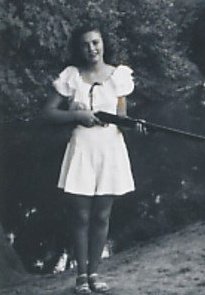 Mamacita says: This Sunday will be, appropriately enough, a day filled with mothers. Mine, my sisters, my niece, grandmothers, aunts, daughters, cousins, me. . . . all mothers, and several of them more than one KIND of mother. (no, not THAT kind of mother. Perhaps you were thinking of YOUR family?) Many mothers.
Mamacita says: This Sunday will be, appropriately enough, a day filled with mothers. Mine, my sisters, my niece, grandmothers, aunts, daughters, cousins, me. . . . all mothers, and several of them more than one KIND of mother. (no, not THAT kind of mother. Perhaps you were thinking of YOUR family?) Many mothers.
Once upon a time, we were just sisters and wives and daughters when we got together, sharing a mom and having first names. Now, we’re all Mom, Mommy, Grandma, Mamaw, Aunt, Great-aunt, mother-in-law . . . . I can remember days when I couldn’t remember the last time someone called me by my actual name.
I also remember, clear as a bell, the first time my child said my new name. Mama. That moment is etched on my heart, in beautiful calligraphy, and decorated with fresh flowers. I still love to hear my children say “Mom.” These women whose children refer to them by their first names, instead of some variation of mother? I pity both woman and child. It’s not right. “Mother” and all its incarnations are names of honor.
Naturally, this doesn’t keep me from snickering at women who choose a synonym for “grandmother” that sounds like poo or a body part or something from an old 70’s porn flick.
Item: I am not a grandmother.
Contrary to popular belief, mothers are not omniscient; we don’t have eyes in the backs of our 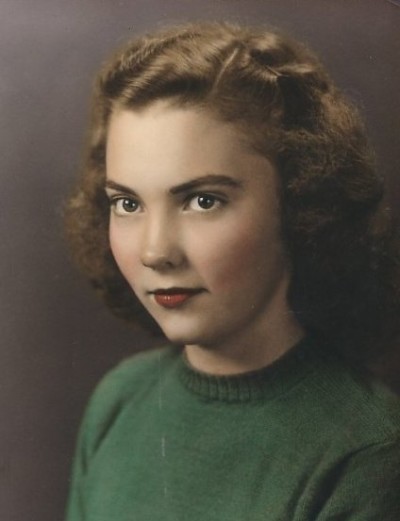 heads, and we can’t read your mind. The only exception to that would be MY mother.
heads, and we can’t read your mind. The only exception to that would be MY mother.
And speaking of my mother. . . Mom, I have tried to emulate you in many ways, all of my life. You read to us. You sat down on the floor and played with us. You used the power of Parenthood and created Special Days, all throughout the year. Christmas is a holiday, sure, but it was YOU who created OUR Christmas. I still fix Easter baskets for my kids exactly the way you fixed them for us. I have tried to “do” holidays just as you did, all my married life.
I’m looking forward to Sunday, dear sisters and nieces and daughters and all of the other wonderful descriptions that come with all of you. I might be the weirdo of the bunch – oh, it’s not like I don’t KNOW that!!!! -but I might also be the most sentimental of the bunch.
1.The phrase “working mother” is redundant. ~Jane Sellman
2. The moment a child is born, the mother is also born. She never existed before. The woman existed, but the mother, never. A mother is something absolutely new. ~Rajneesh
3. I remember my mother’s prayers and they have always followed me. They have clung to me all my life. ~Abraham Lincoln
4. A mother is a person who, seeing there are only four pieces of pie for five people, promptly announces she never did care for pie. ~Tenneva Jordan
5. The heart of a mother is a deep abyss at the bottom of which you will always find forgiveness. ~Honoré de Balzac
6. He is a poor son whose sonship does not make him desire to serve all men’s mothers. ~Harry Emerson Fosdick
7. An ounce of mother is worth a pound of clergy. ~Spanish Proverb
8. My mom is a neverending song in my heart of comfort, happiness, and being. I may sometimes forget the words but I always remember the tune. ~Graycie Harmon
9. Any mother could perform the jobs of several air traffic controllers with ease. ~Lisa Alther
10. Grown don’t mean nothing to a mother. A child is a child. They get bigger, older, but grown? What’s that suppose to mean? In my heart it don’t mean a thing. ~Toni Morrison, Beloved
11. The only mothers it is safe to forget on Mother’s Day are the good ones. ~Mignon McLaughlin
12. A mom forgives us all our faults, not to mention one or two we don’t even have. ~Robert Brault
13. One good mother is worth a hundred schoolmasters. ~George Herbert
14. Mother is the name for God in the lips and hearts of little children. ~William Makepeace Thackeray
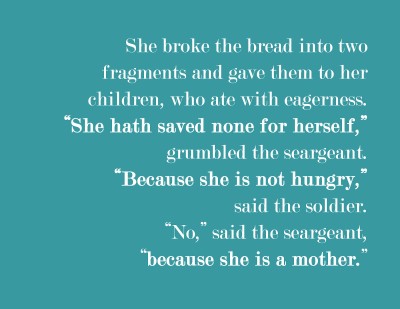 15. Every beetle is a gazelle in the eyes of its mother. ~Moorish Proverb
15. Every beetle is a gazelle in the eyes of its mother. ~Moorish Proverb
16. All that I am or ever hope to be, I owe to my angel Mother. ~Abraham Lincoln
17. No one in the world can take the place of your mother. Right or wrong, from her viewpoint you are always right. She may scold you for little things, but never for the big ones. ~Harry Truman
18. God could not be everywhere, so He created mothers. ~Jewish Proverb
19. Biology is the least of what makes someone a mother. ~Oprah Winfrey
20. I regard no man as poor who has a godly mother. ~ Abraham Lincoln
21. The mother loves her child most divinely not when she surrounds him with comforts and anticipates his wants, but when she resolutely holds him to the highest standards and is content with nothing less than his best. ~ Hamilton Wright Mabie
22. The hand that rocks the cradle is the hand that rules the world. ~ William Ross Wallace
23. There never was a woman like her. She was gentle as a dove and brave as a lioness… The memory of my mother and her teachings were, after all, the only capital I had to start life with, and on that capital I have made my way. ~ Andrew Jackson
24. Who is getting more pleasure from this rocking, the baby or me? ~ Nancy Thayer
25. No matter how old a mother is, she watches her middle-aged children for signs of improvement. ~ Florida Scott-Maxwell
26. Sometimes when I look at all my children, I say to myself, ‘Lillian, you should have stayed a virgin.'” ~ Lillian Carter
27. And so our mothers and grandmothers have, more often than not anonymously, handed on the creative spark, the seed of the flower they themselves never hoped to see — or like a sealed letter they could not plainly read. ~ Alice Walker
28. Women do not have to sacrifice personhood if they are mothers. They do not have to sacrifice motherhood in order to be persons. Liberation was meant to expand women’s opportunities, not to limit them. The self-esteem that has been found in new pursuits can also be found in mothering. ~ Elaine Heffner
29. If you bungle raising your children, I don’t think whatever else you do well matters very much. ~ Jacqueline Kennedy Onassis
30. I looked on child rearing not only as a work of love and duty but as a profession that was fully as interesting and challenging as any honorable profession in the world and one that demanded the best I could bring to it. ~ Rose Kennedy
31. A mother is not a person to lean on, but a person to make leaning unnecessary. ~ Dorothy Canfield Fisher
32. She was the archetypal selfless mother: living only for her children, sheltering them from the consequences of their actions — and in the end doing them irreparable harm. ~ Marcia Muller
33. Spend at least one Mother’s Day with your respective mothers before you decide on marriage. If a man gives his mother a gift certificate for a flu shot, dump him. ~ Erma Bombeck
34. No one ever died from sleeping in an unmade bed. I have known mothers who remake the bed 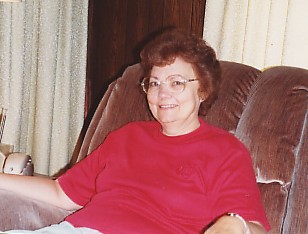 after their children do it because there’s a wrinkle in the spread or the blanket is on crooked. This is sick. ~ Erma Bombeck
after their children do it because there’s a wrinkle in the spread or the blanket is on crooked. This is sick. ~ Erma Bombeck
35. Becoming a mother makes you the mother of all children. From now on each wounded, abandoned, frightened child is yours. You live in the suffering mothers of every race and creed and weep with them. You long to comfort all who are desolate. ~ Charlotte Gray
36. Giving kids clothes and food is one of thing, but it’s much more important to teach them that other people besides themselves are important and that the best thing they can do with their lives is to use them in the service of other people. ~ Dolores Huerta
37. Blaming mother is just a negative way of clinging to her still. ~ Nancy Friday
38. I love people. I love my family, my children . . . but inside myself is a place where I live all alone and that’s where you renew your springs that never dry up. ~ Pearl S. Buck
39. The most important thing a father can do for his children is to love their mother. ~ Father Theodore Hesburgh
40. When, however, one reads of a witch being ducked, of a woman possessed by devils, of a wise woman selling herbs, or even a very remarkable man who had a mother, then I think we are on the track of a lost novelist, a suppressed poet. . . indeed, I would venture to guess that Anon, who wrote so many poems without signing them, was often a woman. ~ Virginia Woolf
41. A mother’s love for her child is like nothing else in the world. It knows no law, no pity, it dares all things and crushes down remorselessly all that stands in its path. ~ Agatha Christie
42. You do not really understand something unless you can explain it to your grandmother. ~ Albert Einstein
43. If there were no schools to take the children away from home part of the time, the insane asylum would be filled with mothers. ~ Edgar Watson Howe
44. What the mother sings to the cradle goes all the way down to the coffin. ~ Henry Ward Beecher
45. My mother had a great deal of trouble with me, but I think she enjoyed it. ~ Mark Twain
46. Over the years I have learned that motherhood is much like an austere religious order, the joining of which obligates one to relinquish all claims to personal possessions. ~ Nancy Stahl
47. There never was a child so lovely but his mother was glad to get him asleep ~ Ralph Waldo Emerson
48. At work, you think of the children you have left at home. At home, you think of the work you’ve left unfinished. Such a struggle is unleashed within yourself. Your heart is rent. ~ Golda Meir
49. A mother is she who can take the place of all others but whose place no one else can take. ~ Cardinal Mermilod
50. A mother’s yearning feels the presence of the cherished child even in the degraded man. ~ George Eliot
51. There are lots of things that you can brush under the carpet about yourself until you’re faced with somebody whose needs won’t be put off. ~ Angela Carter
52. Isidor Isaac Rabi’s mother used to ask him, upon his return from school each day, “Did you ask any good questions today, Isaac?” ~ Steve Chandler
53. Sometimes the poorest woman leaves her children the richest inheritance. ~ Ruth E. Renkel
54. Mother love is the fuel that enables a normal human being to do the impossible. ~ Marion C. Garretty
55. A mother is never cocky or proud, because she knows the school principal may call at any minute to report that her child has just driven a motorcycle through the gymnasium. ~ Mary Kay Blakeley
56. It would seem that something which means poverty, disorder and violence every single day should be avoided entirely, but the desire to beget children is a natural urge. ~ Phyllis Diller
57. Parents often talk about the younger generation as if they didn’t have anything to do with it. ~ Haim Ginott
58. If you want your children to turn out well, spend twice as much time with them, and half as much money. ~ Abigail Van Buren
59. Making a decision to have a child–it’s momentous. It is to decide forever to have your heart go walking around outside your body. ~ Elizabeth Stone
60. If you want your child to be brilliant, tell them fairy tales. If you want your child to be very brilliant, tell them even more fairy tales. ~ Albert Einstein
61. If you want a baby, have a new one. Don’t baby the old one. ~ Jessamyn West
62. My mother was the making of me. ~Thomas Alva Edison
63. You’re not famous until my mother has heard of you. ~ Jay Leno
64. I ask people why they have deer heads on their walls. They always say because it’s such a beautiful animal. There you go. I think my mother is attractive, but I have photographs of her.
~ Ellen DeGeneres
65. I am an example of what is possible when girls from the very beginning of their lives are loved and nurtured by people around them. I was surrounded by extraordinary women in my life who taught me about quiet strength and dignity. ~ Michelle Obama
66. I’d like to be the ideal mother, but I’m too busy raising my kids. ~ Unknown
67. Sing out loud in the car even, or especially, if it embarrasses your children. ~ Marilyn Penland.
68. It’s such a grand thing to be a mother of a mother – that’s why the world calls her “grandmother.” ~ Author Unknown
69. Becoming a grandmother is wonderful. One moment you’re just a mother. The next you are all-wise and prehistoric. ~ Pam Brown
70. If your mom’s asleep, don’t wake her up. ~ Unknown
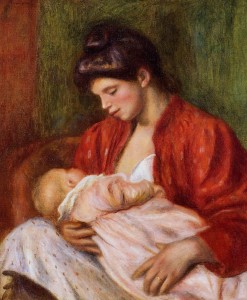 71. My mother is a poem, I’ll never be able to write. Though everything I write, is a poem to my mother. ~ Sharon Doubiago
71. My mother is a poem, I’ll never be able to write. Though everything I write, is a poem to my mother. ~ Sharon Doubiago
72. Any beast can cry over the misfortunes of its own child. It takes a mensch to weep for others’ children. ~ Sam Levenson
73. Woman knows what man has long forgotten, that the ultimate economic and spiritual unit of any civilization is still the family. ~ Clare Boothe Luce
74. Becoming a mother makes you the mother of all children. From now on each wounded, abandoned, frightened child is yours. You live in the suffering mothers of every race and creed and weep with them. You long to comfort all who are desolate. ~ Charlotte Grey
75. Women do not have to sacrifice personhood if they are mothers. They do not have to sacrifice motherhood in order to be persons. Liberation was meant to expand women’s opportunities, not to limit them. The self-esteem that has been found in new pursuits can also be found in mothering. ~ Elaine Heffner
==
P.S. What’s that she’s saying? She needs to FIND HERSELF? “Find herself” my Aunt Fanny. I call bullshit on that one. Act your age, even if it’s just an “act.” You had a child. Grow a pair (above or below; both kinds can be great parents), and be a parent to your child. He doesn’t need a friend your age. He’ll have pals his own age. YOU can “find yourself” after your job is done.
P.P.S. Does anybody else love it when, out in public, a child says “Mama?” and forty women instinctively turn their heads?
P.P.P.S. Grammar Queen that I am – terrifyingly so, in fact, so watch your step – I absolutely love this cartoon:
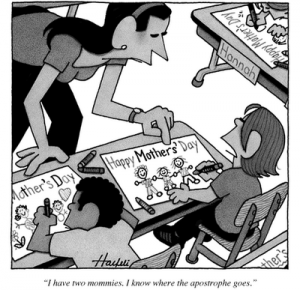
 Mamacita says: This is my dad, back when he was healthy and strong. Actually, it’s just a few years before the diabetes became stronger than he was. It didn’t take long. . . .
Mamacita says: This is my dad, back when he was healthy and strong. Actually, it’s just a few years before the diabetes became stronger than he was. It didn’t take long. . . . Before the disease began to affect his body and mind in ways we’ll never really know or understand, Dad was awesome. He was a really good father to my sister Teresa and me – so funny, and so talented, and so ready with the singing and poetry and nonsense. To our two younger siblings, Dad wasn’t like that. We all knew he was getting really crabby and selfish and sometimes actually mean, but we didn’t know why. I think we all assumed it was our fault, somehow, that Dad yelled because we messed up. We just never knew what we’d done wrong, which was scary because it meant we’d probably do it again, all unawares, and get yelled at again. Having a voice raised against me works like a whiplash. I know some people yell all the time and it means nothing bad, but to me, yelling means badness. The yeller is bad, and the yelled at is bad. Dad turned into a yeller, and it affected me worse than bullets.
Before the disease began to affect his body and mind in ways we’ll never really know or understand, Dad was awesome. He was a really good father to my sister Teresa and me – so funny, and so talented, and so ready with the singing and poetry and nonsense. To our two younger siblings, Dad wasn’t like that. We all knew he was getting really crabby and selfish and sometimes actually mean, but we didn’t know why. I think we all assumed it was our fault, somehow, that Dad yelled because we messed up. We just never knew what we’d done wrong, which was scary because it meant we’d probably do it again, all unawares, and get yelled at again. Having a voice raised against me works like a whiplash. I know some people yell all the time and it means nothing bad, but to me, yelling means badness. The yeller is bad, and the yelled at is bad. Dad turned into a yeller, and it affected me worse than bullets. was the best. I adored him, when he was himself. His real self. He could still see and walk when Sara was little, and loved to play and take her places.
was the best. I adored him, when he was himself. His real self. He could still see and walk when Sara was little, and loved to play and take her places.
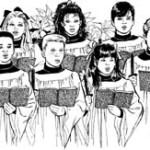 Mamacita says:
Mamacita says: 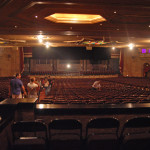 For over twenty years, I attended school concerts, spelling bees, science fairs, plays, and other things, and for over twenty years I watched families pack up and leave the very minute THEIR child’s part was finished. These people paid no attention to the fact that the show was still going on while they were loudly bustling themselves up the aisles, out the doors, and across the parking lot so they could beat the rush getting out of the place, and get HOME where they could, finally, after an extra-long day, unwind. After all, they deserved it, didn’t they?
For over twenty years, I attended school concerts, spelling bees, science fairs, plays, and other things, and for over twenty years I watched families pack up and leave the very minute THEIR child’s part was finished. These people paid no attention to the fact that the show was still going on while they were loudly bustling themselves up the aisles, out the doors, and across the parking lot so they could beat the rush getting out of the place, and get HOME where they could, finally, after an extra-long day, unwind. After all, they deserved it, didn’t they?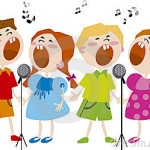 Think of how those children must feel when you’re packing up and leaving while they’re on stage singing much-practiced songs meant for you, and you obviously care more about yourselves than about children who aren’t yours . . . .
Think of how those children must feel when you’re packing up and leaving while they’re on stage singing much-practiced songs meant for you, and you obviously care more about yourselves than about children who aren’t yours . . . . you?
you? to watch? Why do so many parents choose to stay home and watch Honey Boo Boo and her repulsive family instead of their own children? June Shannon’s kids are more important than your own? The Duck Dynasty family is more important than yours?
to watch? Why do so many parents choose to stay home and watch Honey Boo Boo and her repulsive family instead of their own children? June Shannon’s kids are more important than your own? The Duck Dynasty family is more important than yours?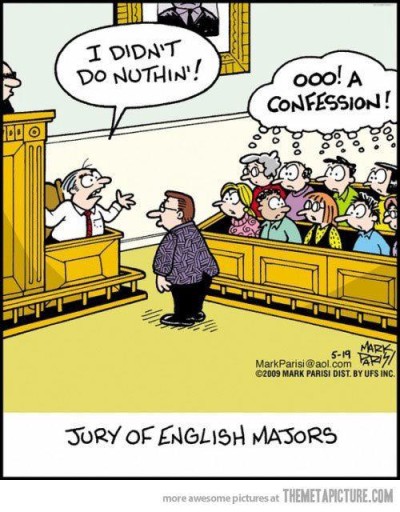 Mamacita says: I will have to say that if I were on that jury, I, too, would consider that statement to be one of admission of guilt. Parse that statement and the double negative would, as in math, create a positive. Double negatives are the same as a positive.
Mamacita says: I will have to say that if I were on that jury, I, too, would consider that statement to be one of admission of guilt. Parse that statement and the double negative would, as in math, create a positive. Double negatives are the same as a positive.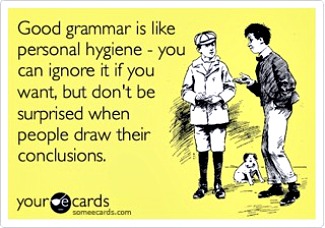 know the rules, you can break them creatively. It’s easy to tell the difference between a person whose grammar is “interesting” in order to create an effect from a person whose grammar is “interesting” because he/she simply doesn’t know any better.
know the rules, you can break them creatively. It’s easy to tell the difference between a person whose grammar is “interesting” in order to create an effect from a person whose grammar is “interesting” because he/she simply doesn’t know any better. Mamacita says: This Sunday will be, appropriately enough, a day filled with mothers. Mine, my sisters, my niece, grandmothers, aunts, daughters, cousins, me. . . . all mothers, and several of them more than one KIND of mother. (no, not THAT kind of mother. Perhaps you were thinking of YOUR family?) Many mothers.
Mamacita says: This Sunday will be, appropriately enough, a day filled with mothers. Mine, my sisters, my niece, grandmothers, aunts, daughters, cousins, me. . . . all mothers, and several of them more than one KIND of mother. (no, not THAT kind of mother. Perhaps you were thinking of YOUR family?) Many mothers. heads, and we can’t read your mind. The only exception to that would be MY mother.
heads, and we can’t read your mind. The only exception to that would be MY mother. 15. Every beetle is a gazelle in the eyes of its mother. ~Moorish Proverb
15. Every beetle is a gazelle in the eyes of its mother. ~Moorish Proverb after their children do it because there’s a wrinkle in the spread or the blanket is on crooked. This is sick. ~ Erma Bombeck
after their children do it because there’s a wrinkle in the spread or the blanket is on crooked. This is sick. ~ Erma Bombeck


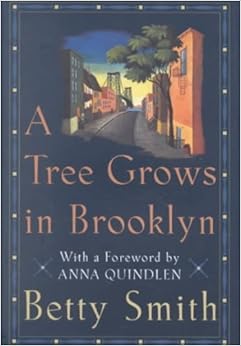
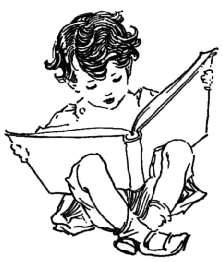 I learned to read when I was really little, but I have never read as most other people do. When I read, I look at a page and immediately, that page is affixed inside my head. I can later “bring it back,” inside my head, glance at it and know what it says again. If I had to, I could read it back word for word in my head, but that is not how I read. I look at the whole page and just “know.” From the time I was very young, I could do this. It’s really handy on planes, for I can re-read entire books by just closing my eyes, concentrating on a particular book, and seeing it page after page in my head.
I learned to read when I was really little, but I have never read as most other people do. When I read, I look at a page and immediately, that page is affixed inside my head. I can later “bring it back,” inside my head, glance at it and know what it says again. If I had to, I could read it back word for word in my head, but that is not how I read. I look at the whole page and just “know.” From the time I was very young, I could do this. It’s really handy on planes, for I can re-read entire books by just closing my eyes, concentrating on a particular book, and seeing it page after page in my head.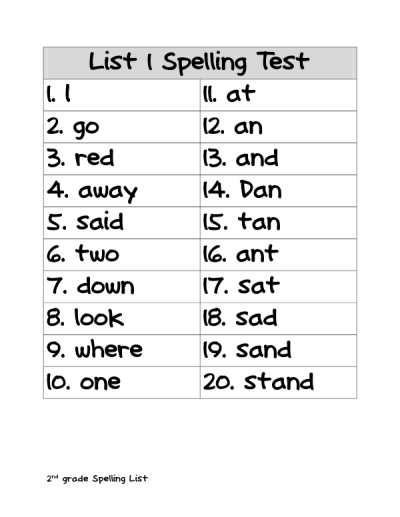 kids who don’t read. We know ideas and themes and learn early on how to connect all of that to the real world. Readers are unfazed by political incorrectness or correctness – we UNDERSTAND, because we know about context, even if we’re young. As for vocabulary. . . I can’t discuss it rationally, even still. Being forced to write list after list of one-syllable beginning reading and spelling words when I was already reading “Gone with the Wind” was so insulting that I used to wipe tears of indignation off my face as I wrote. I can remember thinking, “Why do they make me come here? Do they wish I was slow? Do they WANT me to go backwards instead of forwards? Why do my teachers help everybody but me?”
kids who don’t read. We know ideas and themes and learn early on how to connect all of that to the real world. Readers are unfazed by political incorrectness or correctness – we UNDERSTAND, because we know about context, even if we’re young. As for vocabulary. . . I can’t discuss it rationally, even still. Being forced to write list after list of one-syllable beginning reading and spelling words when I was already reading “Gone with the Wind” was so insulting that I used to wipe tears of indignation off my face as I wrote. I can remember thinking, “Why do they make me come here? Do they wish I was slow? Do they WANT me to go backwards instead of forwards? Why do my teachers help everybody but me?”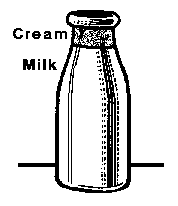 about the fast kids, or the gifted kids, or the reading kids, because everything – curriculum, money, attention – everything seems to be aimed at the lowest possible common denominator.
about the fast kids, or the gifted kids, or the reading kids, because everything – curriculum, money, attention – everything seems to be aimed at the lowest possible common denominator.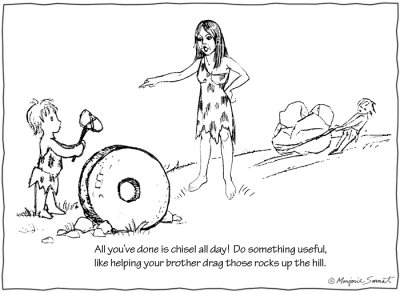 in the real world, and. . . .” Oh, are they? Of COURSE they are. Sigh.
in the real world, and. . . .” Oh, are they? Of COURSE they are. Sigh.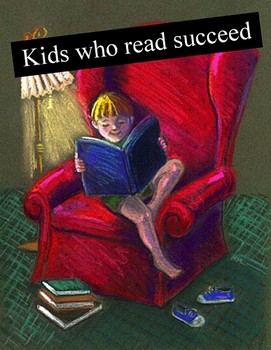 As for those little age disclaimers inside the book jackets. . . . only the worst, stupidest librarians and teachers pay any attention to those. If a child wants to read a book, the good librarians and teachers allow it. The best ones ENCOURAGE it.
As for those little age disclaimers inside the book jackets. . . . only the worst, stupidest librarians and teachers pay any attention to those. If a child wants to read a book, the good librarians and teachers allow it. The best ones ENCOURAGE it.